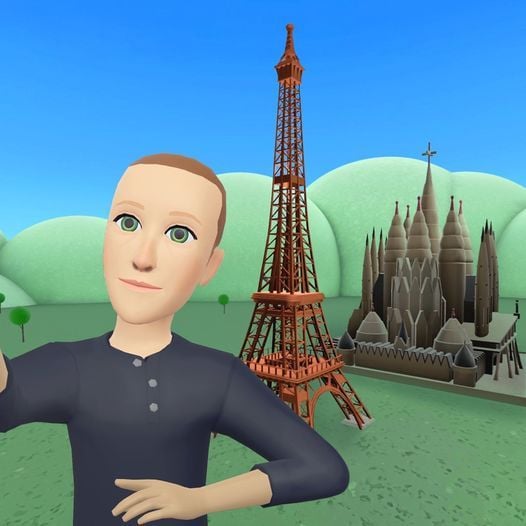Among the trends of focus at the recent CES event in Las Vegas, several attendees noted that there were very few mentions of cryptocurrency, and almost no mentions of the metaverse, both of which had been hot topics over the past two events.
Meta, which in many ways has bet the future of its business on its metaverse vision, seems to have shifted away from the project of late, at least in public, with Meta CEO Mark Zuckerberg seemingly turning his attention to generative AI instead, the latest tech trend of the moment.
But has Meta actually deprioritized its metaverse plans?
According to Meta’s head of global business Nicola Mendelsohn, the metaverse is still very much a focus for the business, but it remains a longer-term bet, and not one that’s going to be a transformative trend in the immediate future.
As Mendelsohn told the World Economic Forum in Davos this week:
“There was a lot of hype [about the metaverse] a couple of years ago, and we were always playing cautious here, telling people we still see that this is going to take a good decade to get to that full realized vision, and so we still see that we’re on that journey , and we’re excited about the advancements and milestones that are happening along the way.”
Meta has repeatedly set this as a long-term target, that in ten years time, the metaverse will be the thing. But right now, people are logically, and rightfully skeptical of the broader vision, though that hasn’t, Meta says, dampened its internal focus on the project.
The building blocks for the metaverse align with broader engagement trends, and how those will translate to the next stage. Right now, kids under 15 are conducting more and more of their daily interactions within gaming worlds, like Fortnite, Roblox, and Minecraft, and it’s this audience that Meta has in mind for the next stage of its metaverse development.
The more that kids interact in this way, using avatars as their main vehicles for connection, and interacting with friends in virtual environments, the more this then becomes the norm, which will eventually see the same connective processes applied to more interaction types, including professional engagement.
We’ve already seen the same play out with social media itself, a trend that started with kids, then expanded to adults, and eventually became a central focus of daily interaction for billions of people. We’ve also seen those same trends branch into the workplace, with many social media-like tools now facilitating professional connection.
Given this, it’s not hard to see Meta’s longer-term vision for its VR worlds. And while it may not be here just yet, it makes sense that Meta’s maintaining its focus, and continuing its work on the project.
Even if it’s not as up-front about it as it had once been.
Indeed, recent reports indicate that Zuckerberg was furious about the mockery that his metaverse post from a few years back received.

That marked a turning point in the company’s external communications about the project, but even so, Meta has continued to pour billions into its metaverse vision, with the company investing over $47 billion in its Reality Labs work in the last four years.
And while we aren’t seeing the full vision as yet, we are getting hints.
Last September, Meta launched a new option that enables users to link into VR games via their mobile device, essentially facilitating access to the metaverse (or a version of it) without a VR headset.
That provides another portal into its digital engagement space, where VR and non VR users can interact, providing another pathway towards the next stage.
Sales of its Quest VR headsets, the latest version of which was released in October, have also been steadily rising, though the cheaper Quest 2 has been outselling the newer model, largely due to price drops around Black Friday.
Looking at all the key indicators, you can see the metaverse vision slowly coming together. But ‘slowly’ is the key, and as such, you’re also going to get a lot more ‘the metaverse is dead’ takes before it does actually comes to fruition.
But it is coming. And with the combination of generative AI also set to revolutionize AI creation, by providing more capacity for more users to create their own interactive dream worlds, simply by speaking them into existence, the various elements are steadily shifting into alignment.
So while what we have seen from Meta has been a bit clunky thus far, I definitely would not be writing the metaverse off, and in fact, I’d recommend investing in AR and VR education, as well as AI, with a view to what’s coming next.